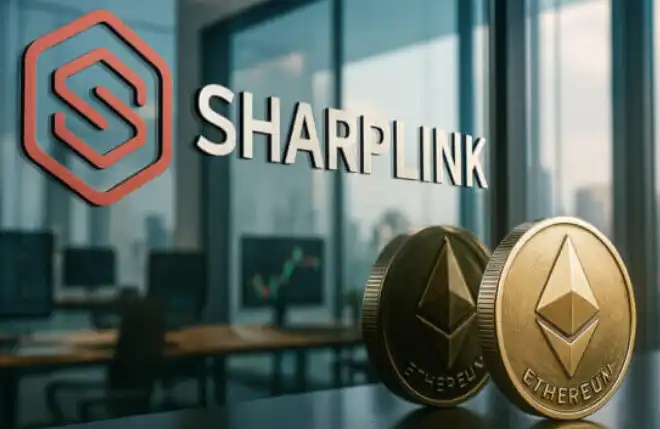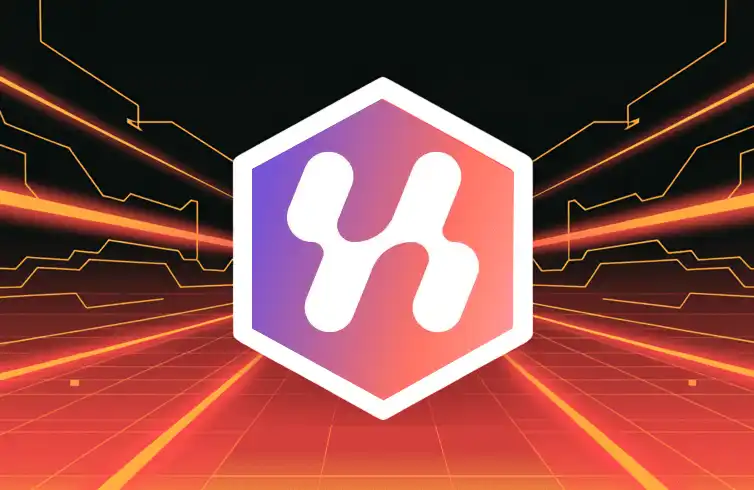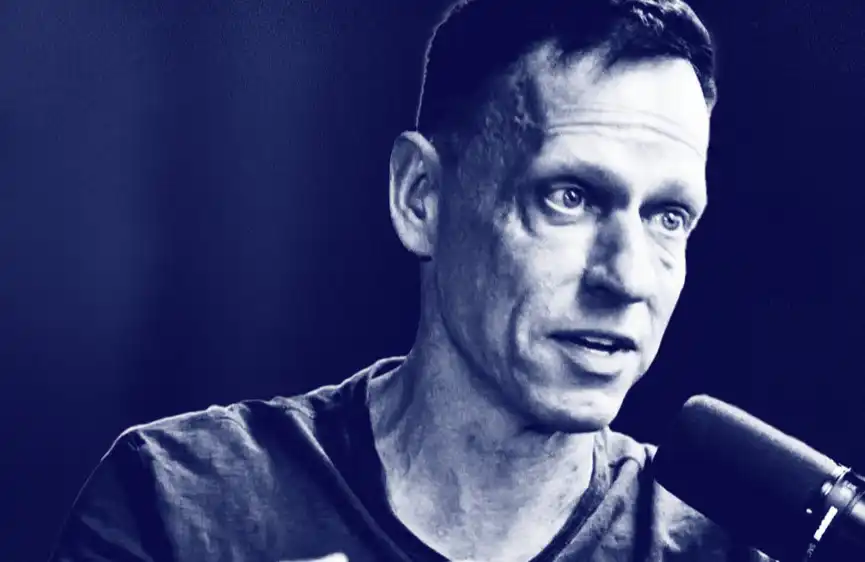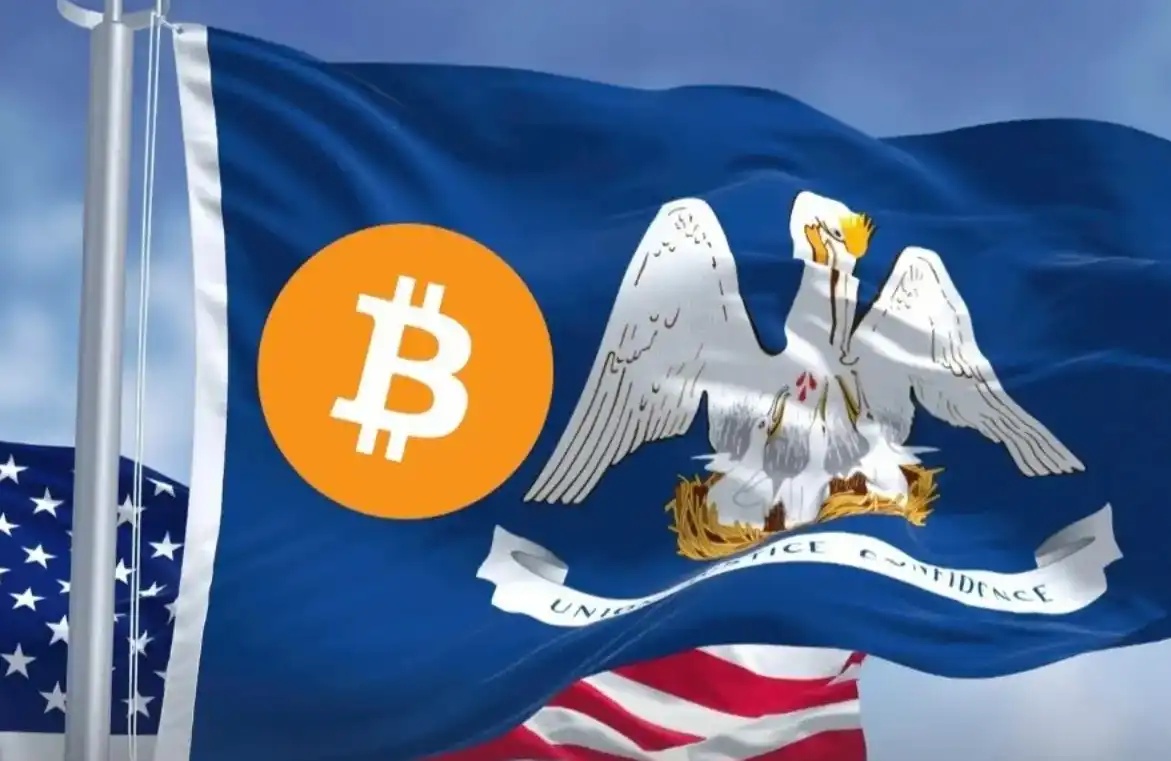A conversation with Denys Tsvaig, co-founder of Web3 healthcare organization DeHealth
Could you start by introducing yourself to our audience?
Denys Tsvaig: Hi, my name is Denys Tsvaig. I'm the co-owner of DeHealth (Healthcare Organization for a Web 3.0 World), a tech entrepreneur and blockchain enthusiast.
Please tell us a little about the DeHealth program. How did the idea come about and how will it help society?
Denys Tsvaig: According to a United Nations report, more than 3 billion people do not have access to Affordable, quality health care. Together with my partner Anna Bondarenko we decided to build a healthcare digital infrastructure and a transparent marketplace for healthcare data.
As a first step we took over the Ukrainian medical information system www.askep.net. At the time of this merger, the system covered the data of 1+ million patients. However, this number has tripled in 2021 due to the new Covid-19 epidemic.
In 2022, together with Anna and her team, we will launch the cryptocurrency DHLT (Decentralized Health Token) for the global healthcare sector. We started working on artificial intelligence to help predict disease and help maintain health.
DeHealth is a digital healthcare hub that provides users with access to telemedicine and medical databases. It is a multifunctional platform that enables users to effectively maintain their health, securely store the latest medical data, and monetize patients' medical assets. Using AI, AR, and blockchain technologies, DeHealth breaks down boundaries to make healthcare accessible and safe around the world.
Today, DeHealth is building out its MetaHealth metaverse, which will provide telemedicine services and other medical services to all users, and potentially generate additional revenue. It will change medicine as we know it.
Toddler users can use artificial intelligence to collect personal medical history on DeHealth's electronic health card. In turn, this structured data enables physicians to reduce the time it takes to gather patient health information, assess risk, make a more specific diagnosis, or adjust treatment. People will live longer and better.
Additionally, for a well-known pharmaceutical manufacturer, DeHealth brings value as a provider of high-quality and relevant medical data, providing an excellent The product - a patient's medical card, with structured and secure non-personalized patient data, with native Token DHLT.
DHLT inspires patients to lead healthy lifestyles and share their data with the global healthcare industry. Therefore, we believe that medical data sales transactions between patients and medicines are a win-win story for all parties: the buyer (pharmaceutical company) receives high-quality and structured Owners (patients) are financially rewarded for sharing their medical data.
DeHealth is a reliable platform for data verification, digitization, transfer and sale on the market between holders and buyers.
More medical data equals longer life. Understanding personal medical data can make technology and the healthcare system better at extending life. If you do some research, you might find that we can extend a person's lifespan by 20-30 years and increase the chances of longevity.
Why is the world turning to Web 3.0? How is DeHealth positioned?
Denys Tsvaig: Web 3.0 represents the next iteration or stage of web/internet evolution , and could be as disruptive and represent a major paradigm shift as Web 2.0. Web 3.0 relies on the core concepts of decentralization, openness, and utility to a large number of users.
A key feature of Web 3.0 will be personalized ownership of digital identities. In turn, DeHealth presents a revolutionary opportunity for people to monetize depersonalized data.
How did we do it?
We have created a metaverse where people can undergo medical tests and monitor their health as quickly and efficiently as possible. We will not only protect user data, but also make healthcare accessible to all.
DeHealth will play a key role in Web 3.0, changing the way doctors are approached. Everything will support the display of the user's mobile phone. You can show your doctor all necessary medical records and data in minutes.
I would like to know why you want to combine blockchain technology with healthcare, and what problems can this combination solve?
Denys Tsvaig: Anna and I have added the DeHealth HLT Network to the DeHealth group of companies . We are now developing a Web 3.0 protocol to leverage medical data and the Metaverse to transform the healthcare system. We are building it as a blockchain ecosystem that provides users with reliable tools for securely processing medical data, monetization, and transparent sales transactions. Our native cryptocurrency, DHLT, will enable users to monetize their medical assets (from data to activities), incentivizing them to embrace health as a new premium lifestyle.
Therefore, in order to promote the principles of web 3.0, the DHLT network is able to better utilize user medical data, improve confidentiality and flexibility in payment arrangements.
Blockchain provides a marketplace for medical data. Funds from the sale of medical assets can be used for medical services and medicines. Everyone can invest in their depersonalized medical data in the global healthcare industry. Additionally, funds can be sent to personal bank accounts.
Health care is a huge industry that includes everything from pharmaceutical companies and hospitals to mental health apps. Experts predict that the market will grow at an annual rate of about 12% through the 2020s. In this industry, the cost of a mistake is very high. Companies operating in the healthcare sector face the following challenges:
—The complexity of secure data transmission and the lack of uniform data storage standards and infrastructure.
—The data verification process is long and the entry threshold is high.
—Disease prediction, prevention and disease treatment.
—Cybersecurity in the industry and its vulnerabilities. Health data security is poor.
—Medical data quality is poor.
—Lack of healthcare culture due to limited patient access to healthcare (geographical, financial and technological factors, including lack of understanding of cryptocurrencies).
The following list of challenges is derived from a set of identified questions:
1. Regulatory requirements for storage and transfer of healthcare data;
2. Sophisticated multi-dimensional privacy protection tools to meet the needs of data mining/machine learning and provide patients with flexible control over their data;
3. Source control of healthcare datasets and derived trained machine learning models throughout the lifecycle stages;
4. Cyber resilience;
5. Degree level;
6. Minimized trust in infrastructure providers ;
7. Minimize trust in data suppliers;
8. Minimize rust on data validators;
9. Minimized trust in the protocol founding team and organization;
10. Cryptoeconomic incentive tools for all key ecosystem actors: data suppliers, data validators, scientists, patients and third-party commercial customers;
11. Develop mutually compatible standards for electronic health records to capture patient data, optimize dataset reusability for data validators, and drive patient adoption;
DeHealth products solve all these problems. We guarantee the transparent operation of data within the ecosystem, and each user can track and protect these data. And will allow users to access their medical data.
How does the DeHealth program protect patient privacy?
Denys Tsvaig: According to @NCBI data, from 2005 to 2019, nearly 300 million people have suffered a medical data breach. The number of such breaches is greater in healthcare than in any other industry. Are you sure your medical data is safe? Cyber thieves may be selling it on the black market. Medical data records can cost up to $250, according to a @trustwave report. That is, people not only lose their private information, but money as well. DeHealth aims to solve this problem. DeHealth processes data in accordance with the rules of HIPPA and GDPR. We are developing healthcare products based on blockchain/Web 3.0 protocol architecture, which will be more secure.
How does it work?
The data in the chain is divided into blocks, each block contains a transaction or a batch of transactions. Each new block is connected to all previous blocks in the encrypted chain, making tampering or deletion nearly impossible. We believe medical data has value.
DeHealth's platform meets the highest certified standards of data security, privacy and integrity to keep your data safe. Blockchain technology ensures data integrity and immutability.
We have security audits from Haken, and we are a partner with most major EMRs and government medical organizations. DeHealth It has passed the strict security certification of government agencies, and our partners are Cyber Police and the National Cyber Security Association of Ukraine.
Can you describe the DHLT Token economics?
Denys Tsvaig: DHLT (Decentralized Health Token) native currency allows users Monetize their medical assets (from data and activities), incentivizing them to embrace health as a new quality way of life. As part of ID0, the first batch of health tokens issued by DeHealth HLT Network were all sold out within 2 hours.
DeHealth doesn't want to stick to the rules, it wants to confront healthcare failures and advance the healthcare system. It is safe to say that DHLT Token is the key to unlocking the premium services provided by DeHealth. DHLT Token is related to health and investment. You'll evaluate advanced healthcare systems while still earning money; while supporting ownership and access to services.
Using DHLT Token, you will get many benefits at the same time, including:
Quick access to world-class sanitation technology;
Earn income anytime, anywhere: DeHealth uses a transparent system to collect citizens' medical records without depriving them of the right to earn income from them.
Data Security & Storage: Your medical history is a valuable asset and should therefore be kept in an easily accessible database.
Medical personnel's access to medical records: the benefits of DHLT Token for medical record evaluation are not limited to ordinary people;
The incentive system is divided into four levels, including:
Level 1:
Passed Targeted actions to obtain Token.
·Fill in personal information.
·Fill in the medical information.
· Validate data from valid suppliers.
· License to sell data.
· Subscribe to receive marketing emails.
· Application download.
The second level, after completing all the above steps, users can get Token in the following ways:
·Invite friends and earn points.
· Sell information and make money from it.
The third level is about the opportunity to become a member of the loyalty program:
< /p>
·Doubles the score of the targeted action.
·Get the chance to convert points into Token.
Level 4:
·User Opportunity to become a brand ambassador.
Users have the opportunity to purchase Tokens at a discounted price.
Medical institutions can also obtain N coins as patient data only after the patient agrees.
The data purchase of users in the system is exclusively for DHLT Token.
What are DeHealth's immediate plans?
Denys Tsvaig: The company has completed ID0 and is preparing to launch DEX and CEX trading platforms . This will help engage users and keep us motivated. We plan to relist DHLT Token. This is an important milestone that affects the development of the company.
Bug Bounty and DeHealth Hackathons are coming soon - we'll be announcing this opportunity to the community, where users have a chance to monetize their knowledge! Our resource will be an important channel for the community. Through the website, you will get information about DeHealth's upcoming projects and news, purchase tokens, and participate in charity activities.
We will also launch the application and update the website.
A unique referral program will be launched soon with a pool of NFTs for the most active investors. This project will help us increase our impact and bring us closer to the Wellness Metaverse. This is one of our main goals - Metaverse provides medical services to users. After all, our main goal is to make medicines affordable for everyone.
This is the latest detailed roadmap for DeHealth development:
May 2022 to
August 2022:
Rebooted team and updated communications and marketing strategy.
Token restarts.
Audit the Token smart contract.
Staking contract (real time).
Development and launch of single site DeHealth.
Developed and released DHLT Network ver. 1.0.
DeHealth ID (example).
Listed on DEX.
Listed on CEX.
Partnerships – Attract crypto partners, medtech and more.
Cross-chain solutions——Solana, Polygon, etc.
Hold a public Bug Bounty.
We are planning a DeHealth Hackathon.
August 2022 to December 2022:
Connect the hospitals running DeHealth DHLT Network, and provide the data flow to the unified database of DHLT Network for further data mining.
Prototype a unified API for provision and consumption of medical data.
Connecting DeHealth AI (Dr.Umka) to a 3rd party hospital running 3rd party EHR software.
This article is from a contribution and does not represent the opinion of Rhythm BlockBeats
Welcome to join the official BlockBeats community:
Telegram Subscription Group: https://t.me/theblockbeats
Telegram Discussion Group: https://t.me/BlockBeats_App
Official Twitter Account: https://twitter.com/BlockBeatsAsia
 Forum
Forum OPRR
OPRR Finance
Finance
 Specials
Specials
 On-chain Eco
On-chain Eco
 Entry
Entry
 Podcasts
Podcasts
 Activities
Activities








